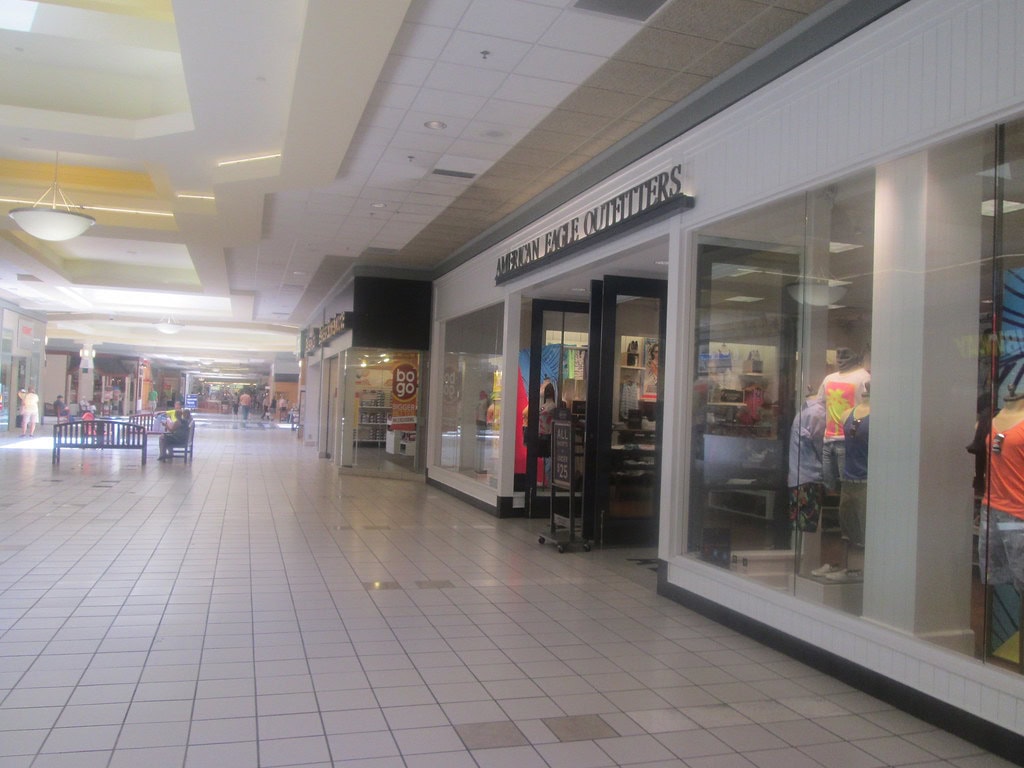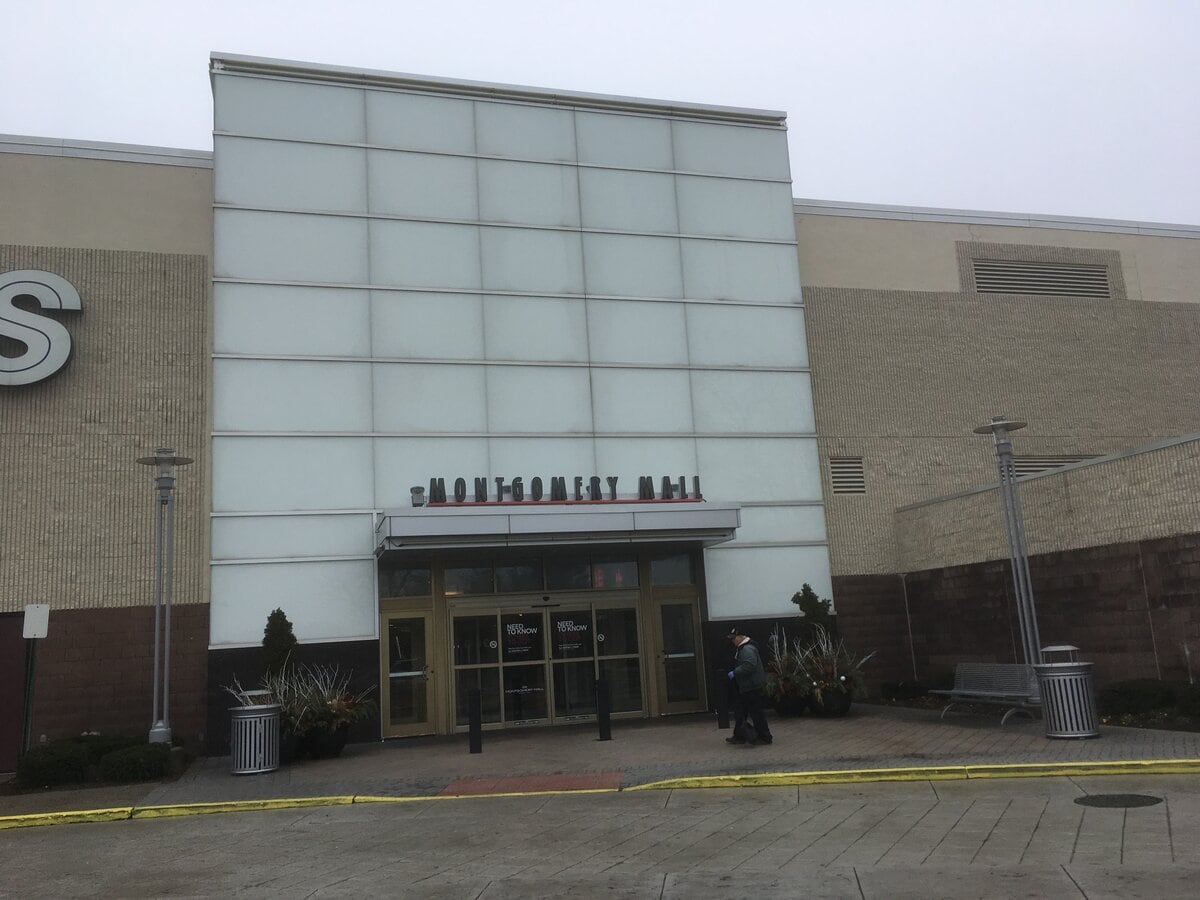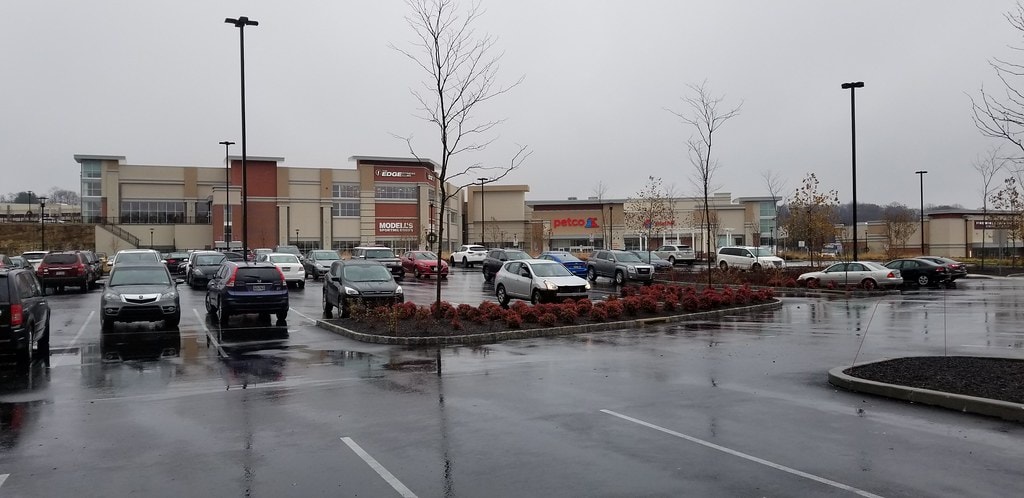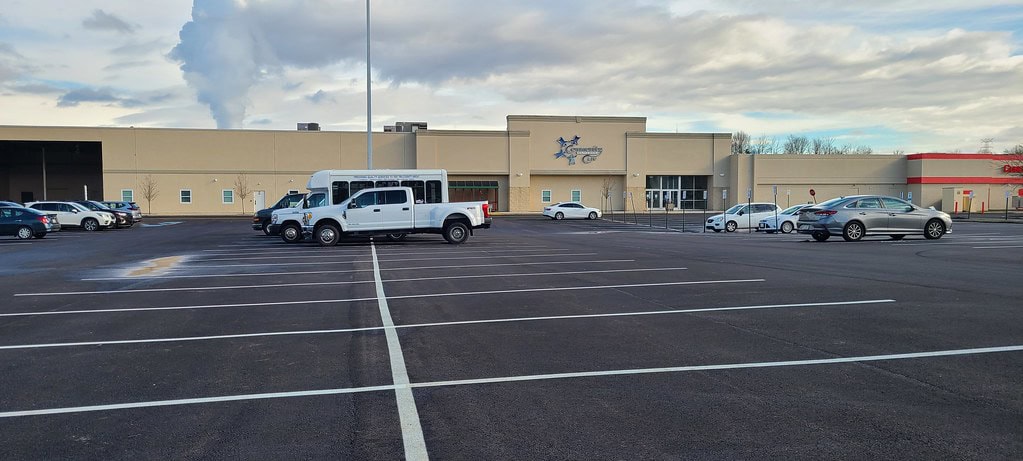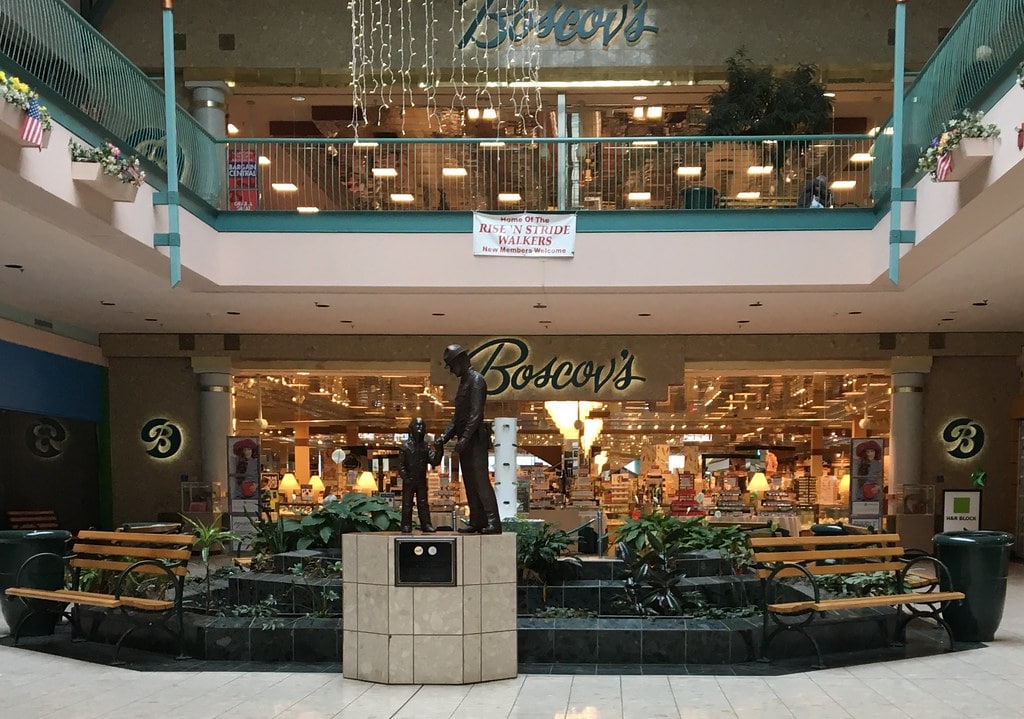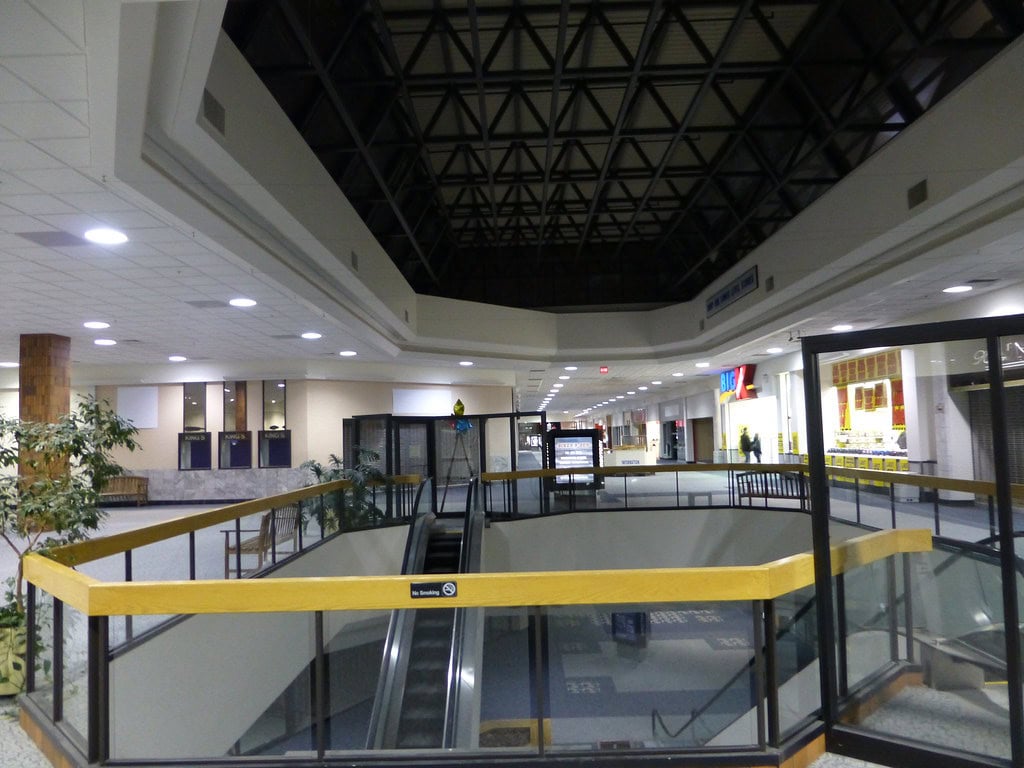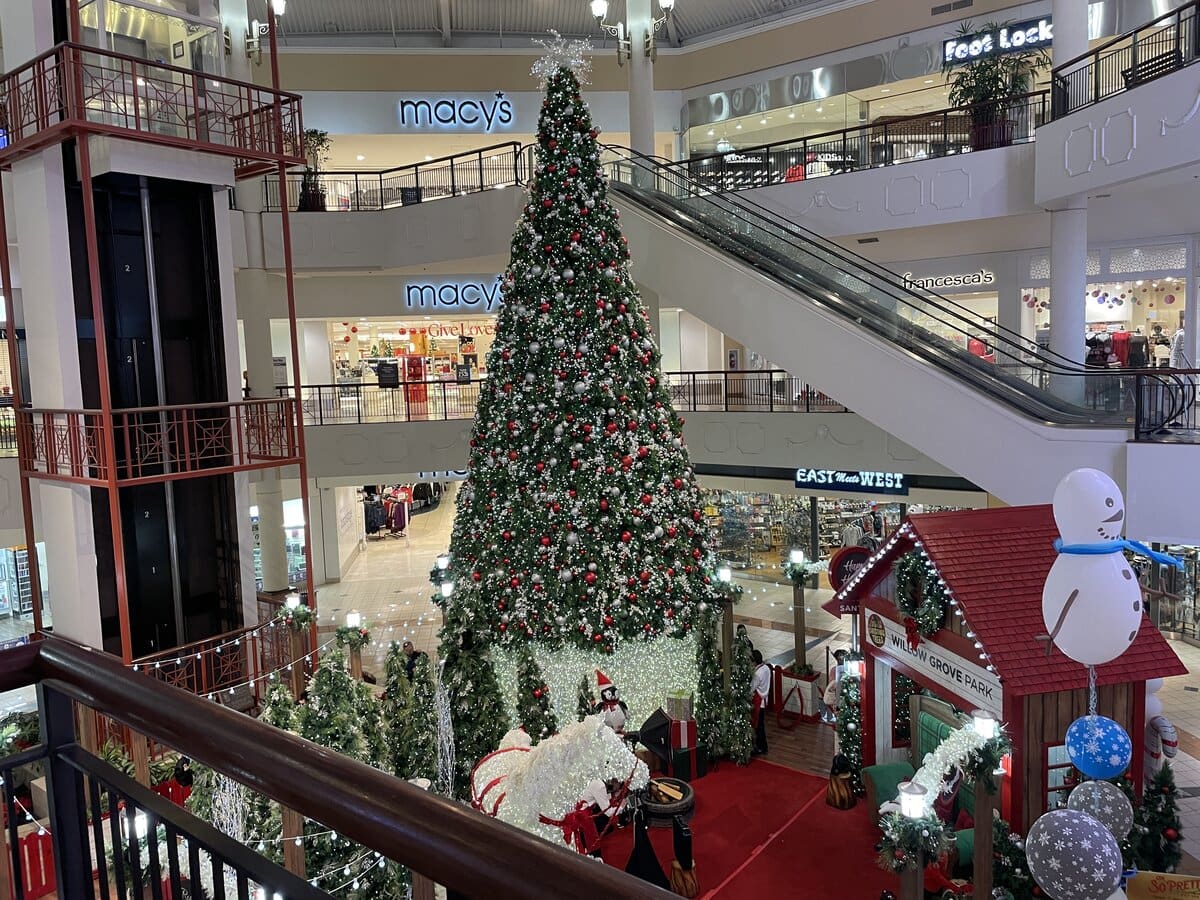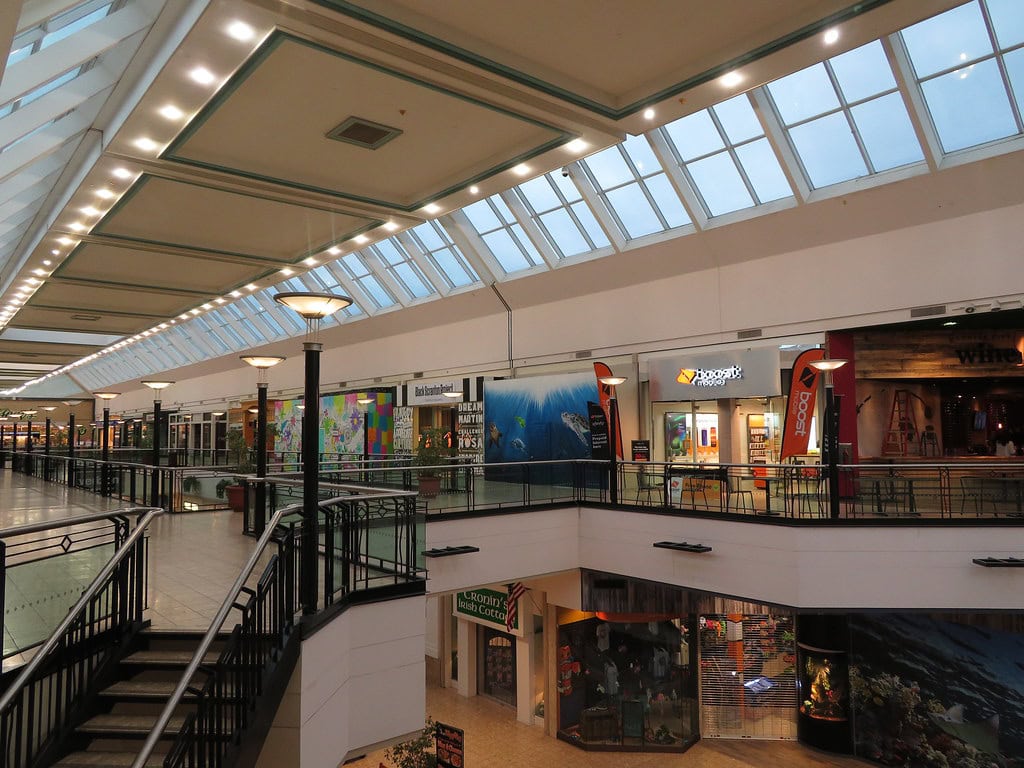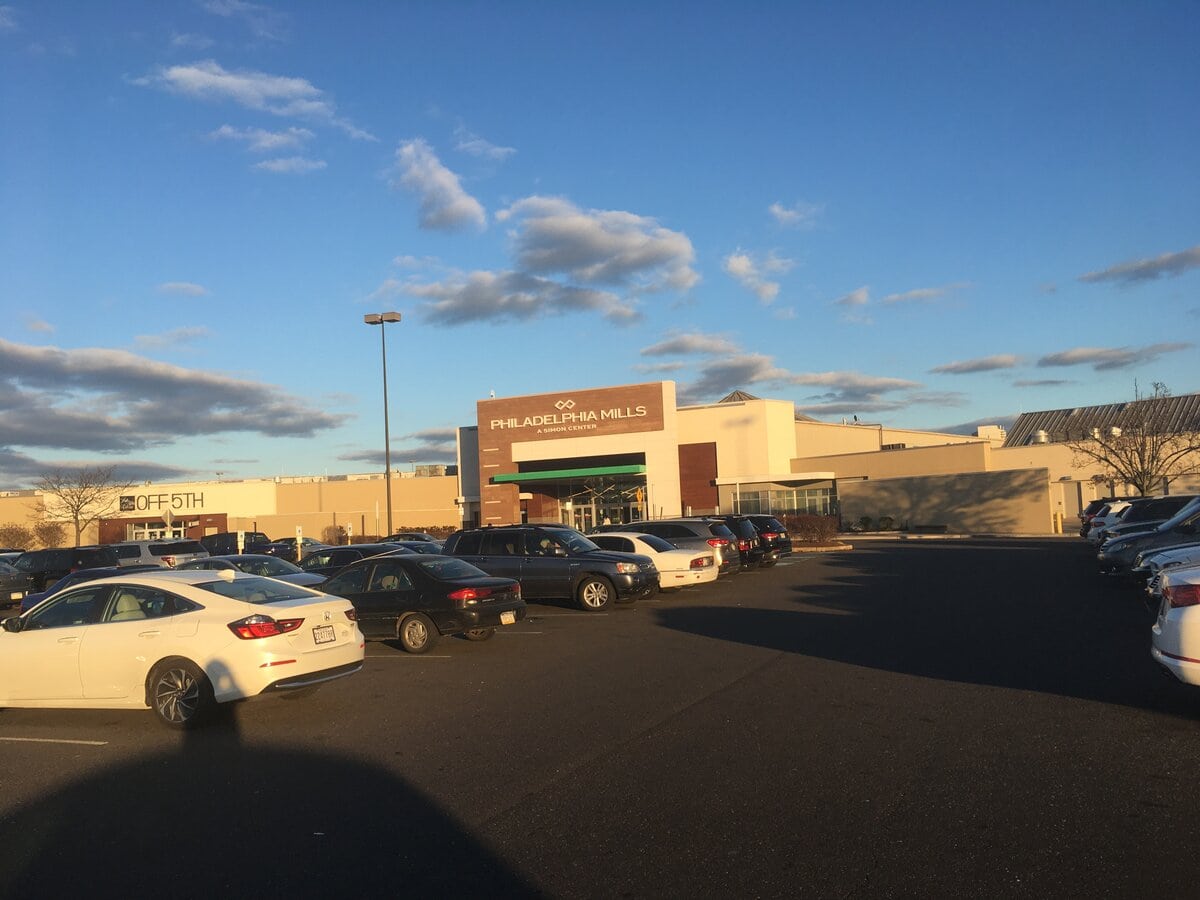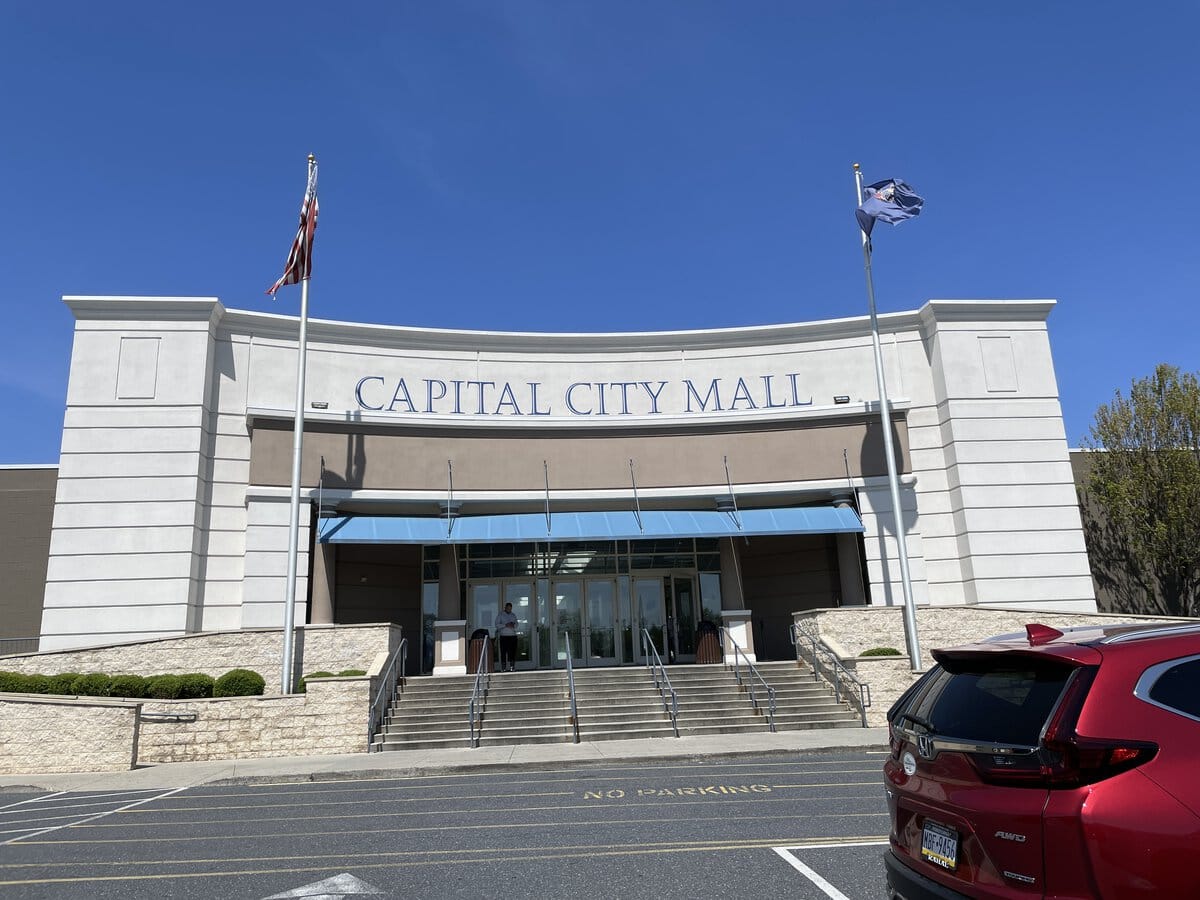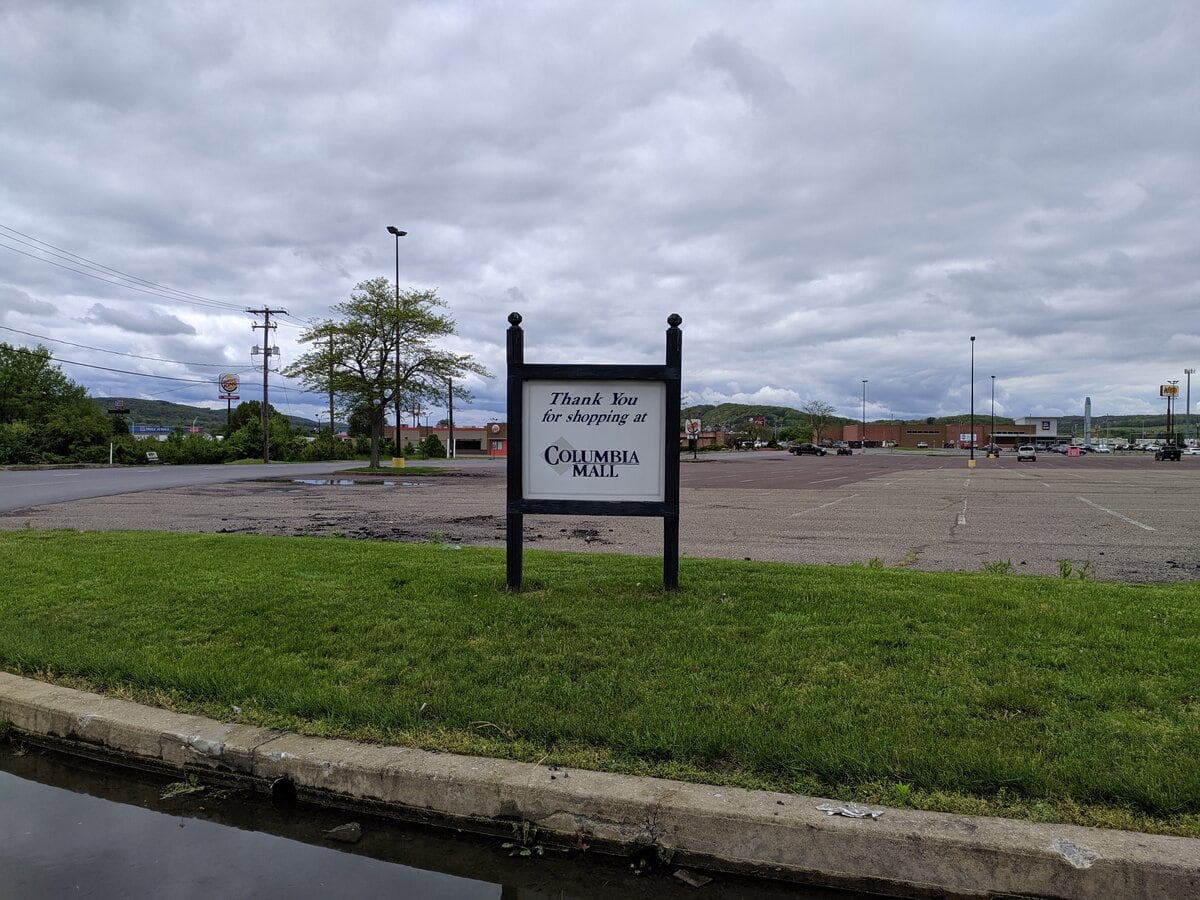Columbia Mall and the Exit 80 dream
For drivers coming over the hill on Interstate 80 near Bloomsburg, Columbia Mall was a sign of new shopping options, easy to spot with its big building and 2,400 parking spaces.
The one-story, 352,500-square-foot mall was at 225 Columbia Mall Drive, on 92 acres next to the I-80 and Pennsylvania 42 intersection.
About 36,000 cars a day used the interstate exit, and another 13,000 used the local road, bringing shoppers from Bloomsburg, Buckhorn, Danville, Berwick, Milton, and the nearby Bloomsburg University of Pennsylvania.
The project cost more than $30 million. When it opened in 1988, the mall had four big stores: Sears, JCPenney, The Bon-Ton, and Hills.
There were also other shops and places to eat that were popular at the time: Friar Tuck bookstore, the Boardwalk Blvd arcade, Arby's and McDonald's, Auntie Anne's, a pizza place, and a sit-down restaurant.
Sears and Penney's closed their longtime downtown Bloomsburg stores to move here, shifting most shopping to the highway and giving students a comfortable place to spend time indoors.
From downtown anchors to $36 million mall
The early years went well enough that, shortly after opening, Columbia Mall was sold for $36 million to Heitman Advisory Corp.
A big company was impressed by how many people visited, the clear area the mall served, and the four main stores. For a shopping center built on what used to be fields, it was a surprising amount.
Inside, families walked around shopping for school clothes past Bon-Ton cosmetics, and downtown Bloomsburg, now without Sears and JCPenney, felt the usual disappointment of a main street turned into smaller stores and offices.
By 1995, the excitement had faded. The property was sold again, this time for $27.6 million, still a good amount but already less than before.
On paper, though, things looked fine: four main stores, a full set of smaller shops, and no other mall like it within a thirty-minute drive.
Hills, the most working-class of the department stores, was still the main draw at one end of the building.
At the end of the decade, when the Hills chain became part of Ames, the Bloomsburg-Buckhorn store just changed its sign and kept going, with a new name hiding the fact that business was getting weaker.
Hills to Ames and the first hollowing out
Ames closed in 2002 when the whole chain went under, and Columbia Mall lost a key store that attracted practical shoppers from the area.
The big store at the back of the mall was left empty. Like many struggling malls, management started renting out the space on weekends.
The old Ames store became a spot for Animal Resource Center yard sales, Eagle Arms gun shows, and outdoor expos run by a local TV station.
But every Monday, the doors closed, the lights went out, and the empty space was still there.
The mall was sold again in 2005, when Cedar Shopping Centers bought it from Bay View Columbia Mall for $14 million. This showed that the mall was still having problems, but there was still some hope.
By 2008, Cedar planned to rebuild and brought in WP Realty to own a quarter of the mall, seeing that the mall, built in the late 1980s, needed more than just a new look.
The local economy was not the main problem. In the past 10 years, the area had grown by about 2 percent, with about 1,700 new homes built.
The real problem was that the old-fashioned indoor mall was getting old faster than the community was.
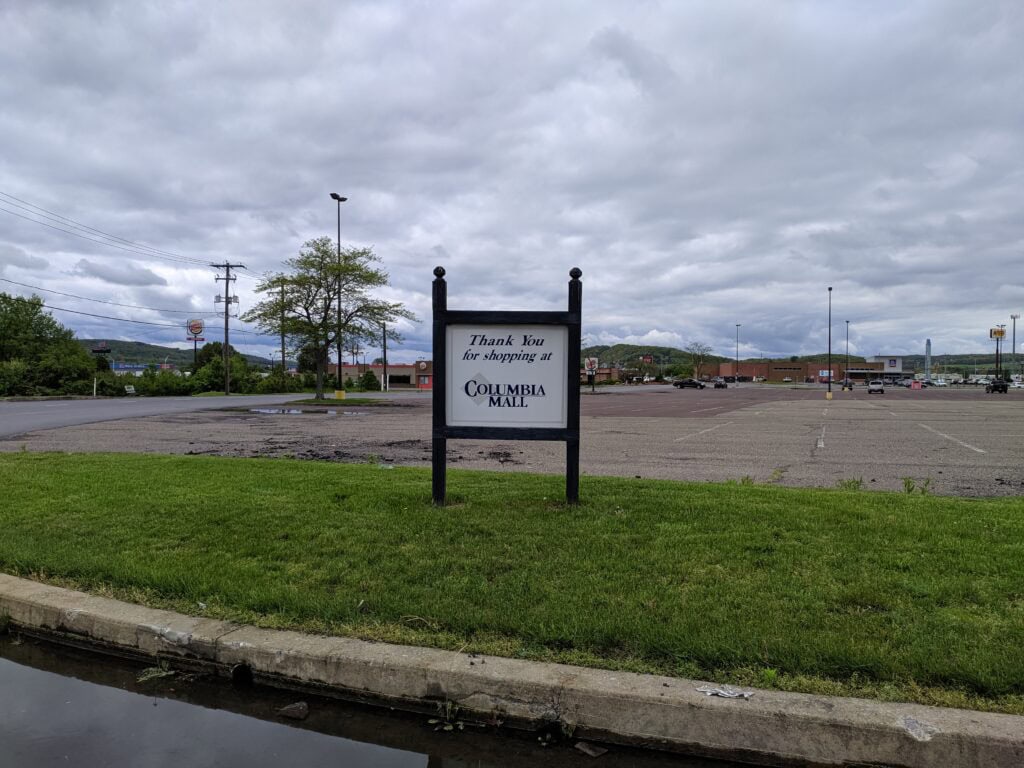
Cedar's plans to revitalize the mall as it became emptier
By the late 2000s, people were calling Columbia Mall a dead mall. Students remembered when it opened with a lot of excitement, featuring an arcade, restaurants, and many national chains.
Now, more than half the stores were empty.
Stores for teens that once made the mall popular, like Gap, DEB, and Claire's, took down their signs and left. Many food-court places were left too.
The mall that was the main hangout in the suburbs during the 1990s now looked more like a flea market inside a strip mall.
Cedar and its partners tried to attract new types of businesses. In the early 2010s, offices started moving in.
Geisinger Health Plan was the first of several non-retail businesses, choosing the mall for its low rent and plenty of parking, not as a place for people to meet.
In 2011, Dunham's Sports took over most of the empty Ames store, replacing yard-sale tables with racks of kayaks and camouflage gear.
University brochures still told visitors to check out the mall, but the gap between what was promised and what people saw kept getting bigger.
When Cedar sold the mall in April 2013 to Empire Columbia LP for $2.8 million, less than a tenth of its original $36 million price, the low sale price confirmed what the empty stores had already shown for years.
New tenants and a new name, but the same old problems remain
Things changed quickly after Empire took over. Sears, one of the mall's original anchor stores, closed in January 2015. The space didn't stay empty for long.
EFO Furniture moved into part of the old Sears in February 2017, and Planet Fitness opened that spring, putting treadmills where Craftsman tools used to be.
Soon, it was common to see cardio machines and sofas instead of the mid-priced clothes and appliances that once filled the mall.
The challenges continued. JCPenney, the mall's other original anchor, closed its store on July 31, 2017.
Bon-Ton, which was already having trouble nationwide, closed in 2018 when the chain went out of business. That same year, MVP Clubhouse, a sports-themed store, took over the last empty Ames space.
On November 1, 2018, the owners tried to make a fresh start by renaming the mall Columbia Colonnade.
In late 2018, the mall was nearly empty but not entirely closed. Stores like GNC, Bath & Body Works, Payless, a local dance school, and a bounce-house called Bloom Bounce were still open.
Greenwood Farm Market, a farmers' market, opened in April 2019. In July, Empire sold the mall to Foust Holdings for $7 million.
The new owners hoped that adding discount stores, gyms, and fresh food would help revive a mall where many small shops were closing.

Pandemic, failed auction, and a closed mall
Before COVID-19, the mall had only a few tenants and non-retail uses. The Veterans Affairs clinic was announced in 2020 and set to open that August.
When the pandemic started, several of the last stores closed. By January 2021, just three inline shops were left along the concourse.
The building started having problems. Tenants complained about bad drinking water and heating and cooling that did not work well.
The roof leaked. There were fewer workers, including security, and sometimes no one picked up the phone when people called the owners.
On March 31, 2022, Outback Roos, a children's activity center and the last store inside the mall, closed. After that, the mall's inside was closed to the public.
Foust had spent about $1.4 million fixing things, but the result was a closed building with only a few big stores.
That summer, the property was put up for sale in an online auction, first planned for July 2022 and then moved to August.
The starting bid was $3.4 million, but the lowest price the seller would accept was $20 million, which was not realistic.
Kohan Retail Investment Group, a company known for buying malls that are having trouble, showed interest before the sale.
Still, the auction ended without anyone meeting the seller's minimum price. Columbia Colonnade stayed with Foust, not sold as a mall, but still in a good spot.
Ollie's, Michaels, and the mixed-use afterlife
In 2024, Foust announced that Ollie's Bargain Outlet had signed an 8-year lease, reportedly at above its usual rent, for the former JCPenney box, while Michaels would move into space vacated by EFO Furniture, which would shift to the old Bon-Ton.
An Arby's planned on an outlot, and the owner floated other - Jersey Mike's, Primanti Bros. - as neighbors he hoped to attract.
By late November 2024, Ollie's was open in the former JCPenney space, and by early June 2025, a Michaels craft store was operating alongside it as another anchor.
The interior was being erased. Early in 2025, the owner began selling off fixtures, signs, and other remnants of Columbia Mall history from the concourse, and the sell-off ran through 2025.
By November, the Michaels chain's box was being marketed as an investment condo on Loopnet. The enclosed mall, closed for years, showed no sign of returning.
Brokers call the property an open-air mixed-use center anchored by EFO Furniture, Planet Fitness, Dunham's Sports, MVP Clubhouse, Ollie's, Michaels, and a Veterans Affairs clinic.
Within 3, 5, and 7 miles live roughly 17, 27, and 38 thousand people. The mall that those people once walked in now survives as memory and salvage.
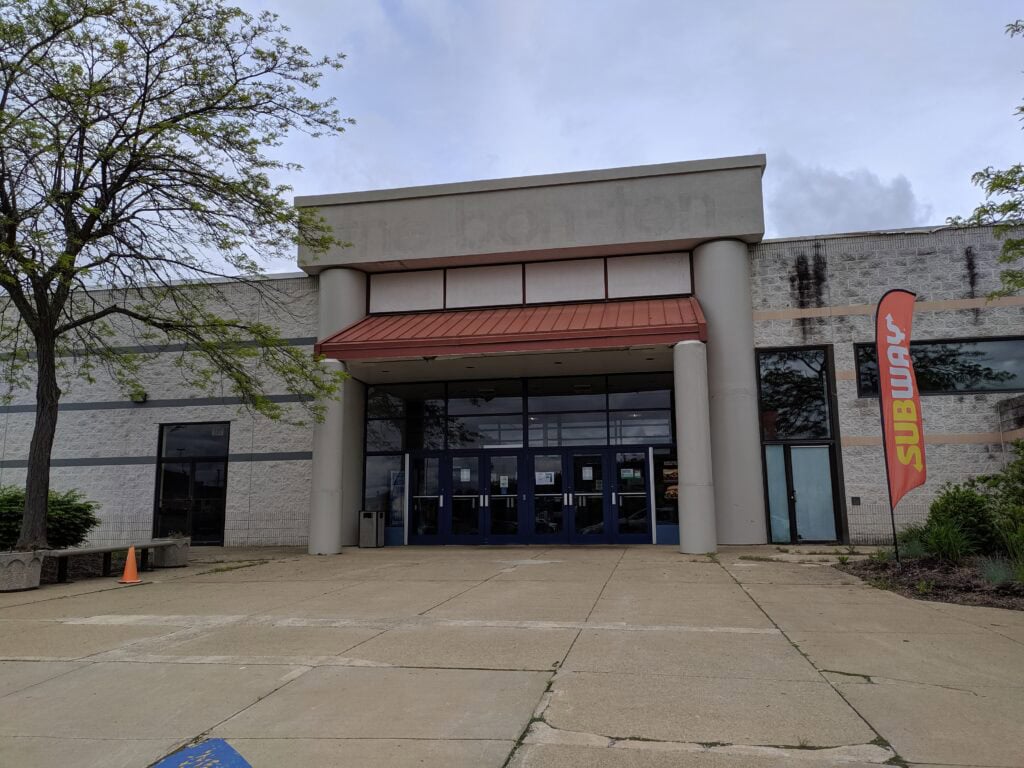
Data centers, hospital plans, and a new orbit
About 20 miles from the Columbia Colonnade, Amazon made a purchase of the valuable property.
In early March 2024, Amazon Web Services bought Talen Energy's Cumulus data-center campus next to the Susquehanna Steam Electric Station in Salem Township for around $650 million.
The site is about 1,200 acres, connects directly to the 2.5-gigawatt nuclear plant, and is set to use up to 960 megawatts of power for data centers, built in 120-megawatt phases.
In June 2025, Amazon shared plans to invest at least $20 billion in data-center projects across Pennsylvania, with sites in Luzerne County near the nuclear plant and in an industrial area in Bucks County.
The company and the state say these projects will create at least 1,250 long-term tech jobs, thousands of construction jobs, and offer job training programs.
A sales-tax break on data-center equipment and a community fund for Luzerne and Columbia counties are also supporting these efforts.
Even closer, right across from the Buckhorn interchange, Geisinger bought land for future development.
Brokers report that the health system spent $19 million on property for a new hospital campus, which will add to a group of outpatient buildings and a large bone and joint care project near the mall.
For Columbia Colonnade, these projects bring something the enclosed mall never had before: a steady, year-round group of workers, patients, and contractors who need everyday services nearby.
Retailers, restaurants, hotels, medical offices, and even apartments can now connect to this new activity.
While the mall itself is mostly empty, the land around it has become the link between a data hub powered by the nuclear plant, a regional hospital complex, and whatever Buckhorn might become next.

